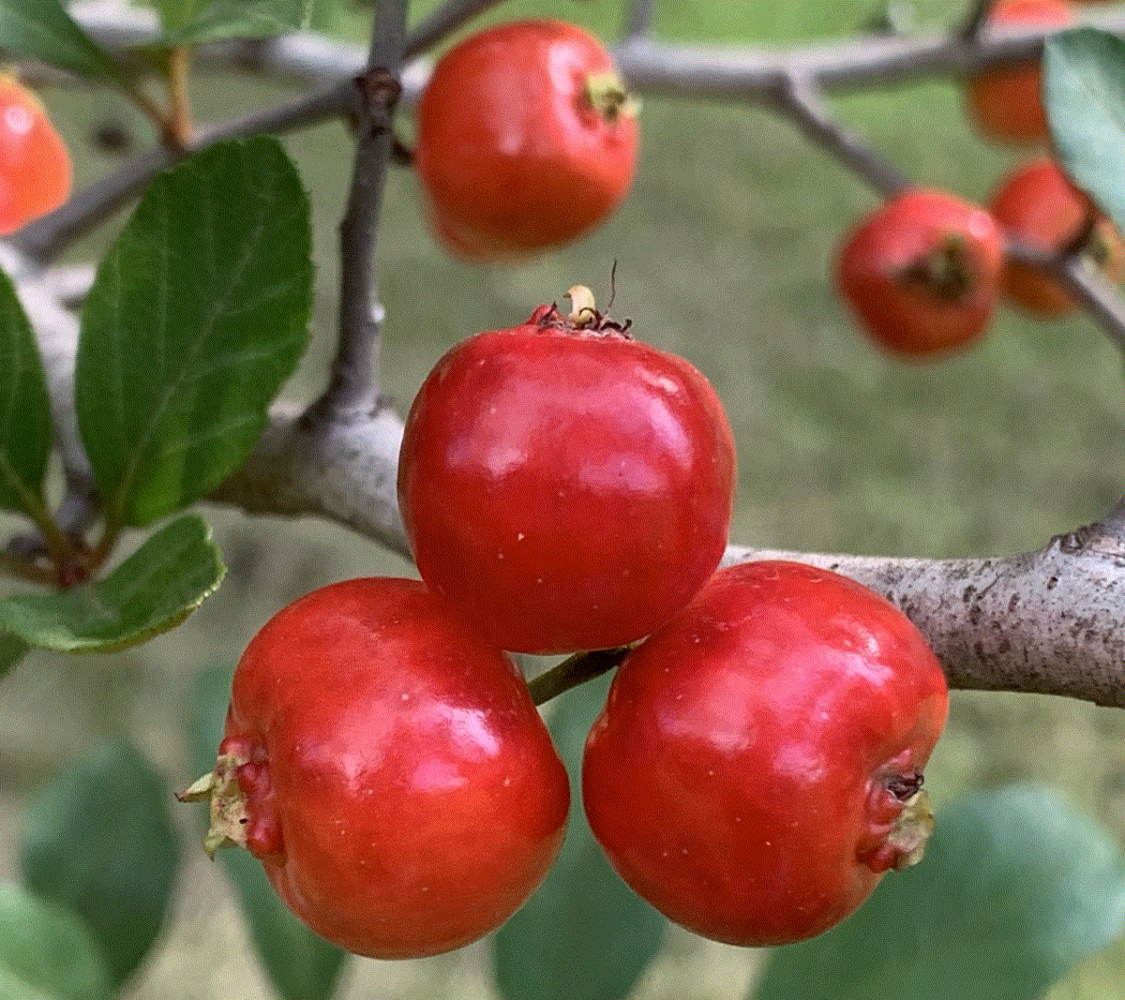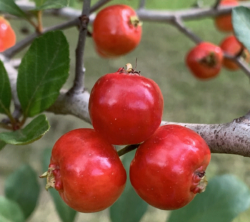Mayhaws
The sour-sweet taste of grandmother’s house
Published: February 29, 2024
Last Updated: June 1, 2024

LSU AgCenter Archive
Mayhaws
“Mayhaw” is a catchall name for similar species in the large genus Crataegus local to the southeastern United States; elsewhere, the plants and their fruits are called hawthorns or thornapples. The trees love wet and acidic soil, often thriving in standing water, and produce white flowers in early spring that resemble those of their apple cousins. Small enough to look like a berry, the fruits are fleshy pomes, like apples or pears, and are too tart for casual eating off the tree, according to most enthusiasts. The mayhaw instead shines after processing—admittedly, many things are better with sugar dumped on them, but the standoffish mayhaw is transformed. It’s most often encountered in jelly, but recipes also suggest making ice cream, pairing it with pecans in a pie, jazzing up pound cake, or throwing it in with other juices to pour over sherbet for punch. (The recipe I found contains no alcohol, but could still make you dizzy—eight cups of sugar and a few liters of lemon-lime soda.)
When people write about mayhaws, they write about grandmothers. Some confluence of old rural knowledge, the time it takes to make jelly, and a grandparent’s indulgence of a child’s sweet tooth places the mayhaw firmly at Grandmother’s House for people who remember it from their childhoods. I had two wonderful grandmothers but they were savory cooks, so I never tasted mayhaws until I was well into my thirties, when I picked up a jar of jelly at a roadside stand. On one level, it’s just another jelly—if you’ve had one kind of sugar-fruit spread, you can imagine others—but I could also see why nothing else quite fills the niche. And while you can certainly obtain mayhaws or mayhaw products with a little effort (like nearly every legal good, you can get mayhaw jelly online), it hasn’t made the leap to common availability or universal familiarity (in contrast to some other Louisiana flavors—say, “Cajun spice”). My attempt to buy another jar of mayhaw jelly at a conventional local grocery store—I tried Rouse’s—failed. Microsoft Word spellcheck doesn’t recognize mayhaws; it recommends “mayhems.” And when I asked eminent 64 Parishes columnist Jessica B. Harris if she felt like writing about mayhaws, she replied that she’d never had one. (I immediately Amazoned her a jar of preserves, relishing the opportunity to introduce a new food to a connoisseur like Harris.)
Until relatively recently, mayhaws weren’t cultivated: enough grew wild for people who wanted to forage them, and Louisiana law even protects their being gathered on public land. As more and more land was developed, though, people began to find that the places where they had gone to gather mayhaws could no longer provide, and so the wild fruit began the transition to bespoke orchard gem. Around 1970, a Webster Parish mayhaw lover named Sherwood Akin developed a domesticated strain, and now this cultivar is grown as a garden plant and farmed on a small scale for jelly and juice—the juice sometimes sold with pectin and instructions for the conversion into preserves. At this writing in November, farms were already taking orders for the 2024 harvest. You can also buy seedlings and young grafted trees from online suppliers, if you’d like to plant your own reliable supply. And while some observers will find themselves wistful to think of a once-wild forage food now requiring domestication in suburban gardens, it does mean that future generations—and future grandmothers—will get to celebrate this sour little fruit that rewards those who put in the effort.
Chris Turner-Neal is the senior managing editor of 64 Parishes.
